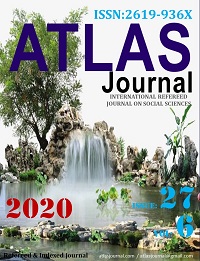A REVİEV OF THE GERMAN COMPOSERS FRİEDRİCH II AND 116th SONATA
DOI:
https://doi.org/10.31568/atlas.434Keywords:
Friedrich II, Prussia, Flute, BaroqueAbstract
The names of rulers in the history of music are not uncommon. It is often said that they concretized the historical peri-od although many royal members directly influenced the development of the art of music in their countries. However, there are very few examples in history that could refer to composer rulers as royal members. One of them is Friedrich II (Friedrich the Great, Friedrich der Große, 1712 - 1786) the Hohenzollern Dynasty, the King of Prussia between 1740 and 1786, , and one of the most brilliant European rulers of the 18th century. He is regarded as one of the founders of the Prussian-German state. Friedrich was fond of music from a young age. He stubbornly continued his flute lessons although he annoyed his belligerent father King Wilhelm. When he acceded to the throne, Friedrich worked hard to raise the musical status of the capital and turn his capital into one of the largest music centers in Europe. Carl Fhilipp Emanuel Bach, Karl Heinrich and the brothers of Johann Gottlieb Graun, Franz Benda, and of course, Johann Joachim Quanz who fascinatet him when he was crown prince and the flute instructor trained him in his palace. Friedrich II created a magnificent palace orchestra (under the presidency of K.H.Graun), founded the Royal Opera in 1742 and built a building specially designed for him (K.H.Graun). Unlike the rulers, very few composer Friedrich from Prussia stands out for his amazing creative productivity. Composer’s creativity legacy: 121 sonata for flute and continuo, 4 concerto for flute, string instruments and continuo, 4 symphony (1. G-dur, 2. G-dur, 3. D-dur, 4. D-dur), 4 kvartet for flute (quartet - G -dur), arias, individual instrumental pieces (usually written for K.H. Graun’s operas), “Daily exercises” for flute (Tägliche Übungen für Flöte). Some of his works are considered lost.
Downloads
Published
How to Cite
Issue
Section
License

This work is licensed under a Creative Commons Attribution-NonCommercial 4.0 International License.


